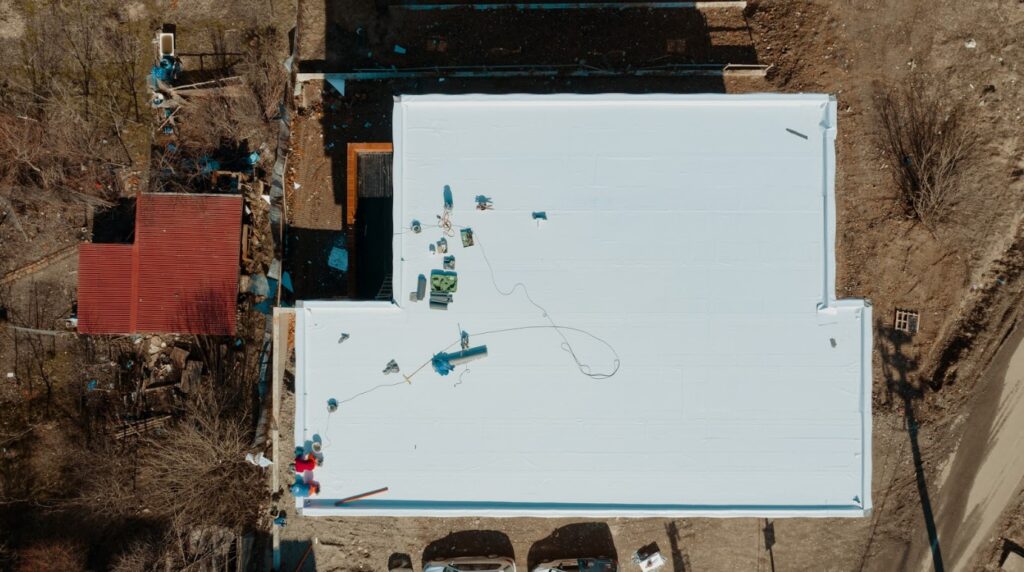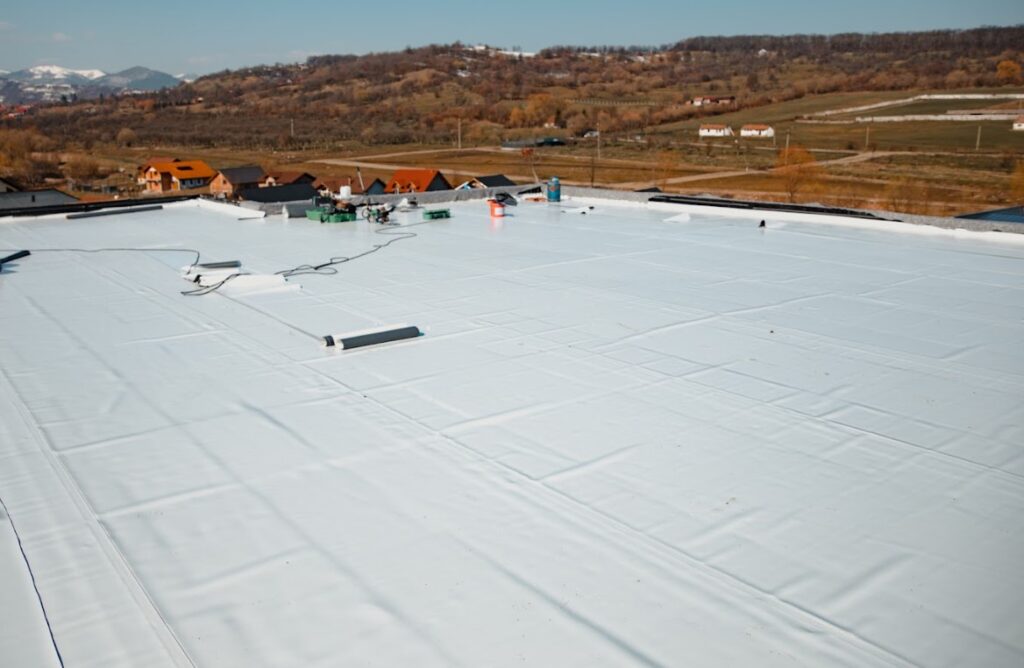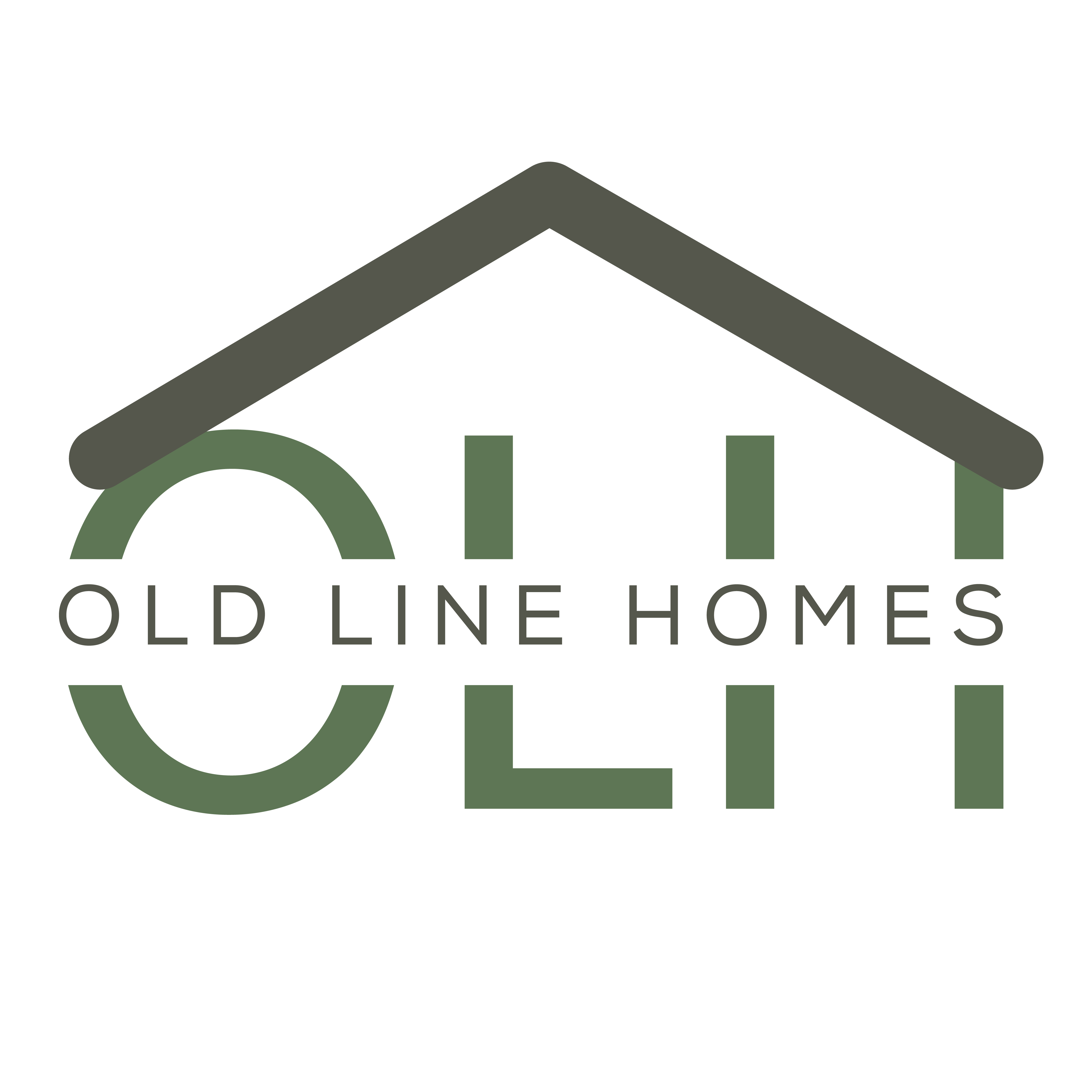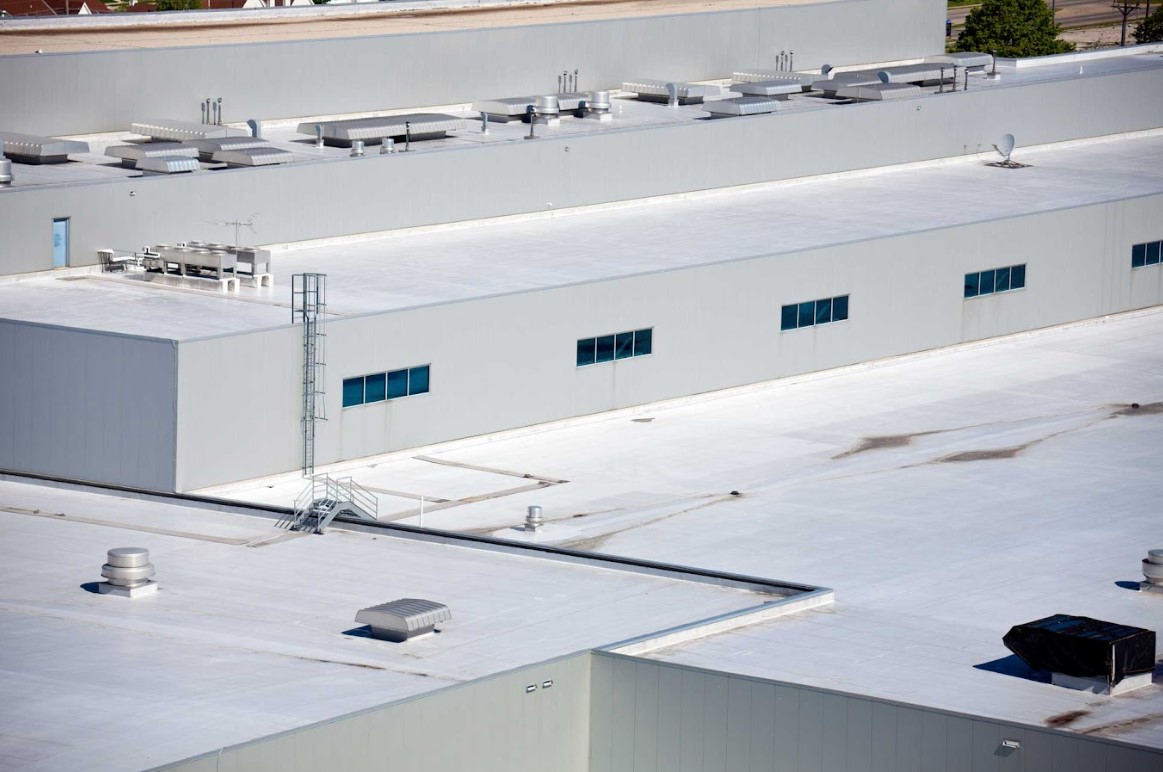If you’re responsible for maintaining or upgrading a commercial building, you already know your roof isn’t just a covering—it’s a critical investment in your property’s safety, efficiency, and value. But with so many materials on the market, choosing the right one can feel overwhelming. Should you go with something low-maintenance? Long-lasting? Energy efficient? What even is TPO?
That’s where we come in.
At Old Line Homes, we help building owners and facility managers across the region make informed, confident roofing decisions. In this guide, we’re comparing commercial roof types in Bel Air, MD—breaking down the most common systems, their pros and cons, and how to match the right material to your specific building and goals.
Let’s make sense of the options—without the jargon.
Why Choosing the Right Commercial Roof Matters
It’s About More Than Just Materials
Your roof does a lot more than keep the rain out. It impacts your building’s energy efficiency, insurance costs, repair frequency, and even tenant satisfaction. A roof that’s wrong for your climate, building structure, or business use can lead to bigger bills and more frequent headaches.
The right system, on the other hand, can reduce maintenance, extend your building’s lifespan, and improve its performance year-round. That’s why understanding your options—and how they compare—is key.
Built-Up Roofing (BUR)
A Classic Choice for Durability
Built-up roofing is one of the oldest types of flat roof systems, made by layering asphalt or tar with felt or fiberglass.
Pros:
- Excellent waterproofing
- Strong protection against foot traffic
- UV and weather resistant when topped with gravel
- Good fire resistance with the right materials
Cons:
- Heavy; may not be ideal for all structures
- More complex and time-consuming to install
- Can be more expensive upfront
Best For: Buildings with heavy rooftop equipment or those needing a long-lasting, impact-resistant solution.
Modified Bitumen Roofing
Flexibility Meets Strength
Modified bitumen roofs are similar to BUR but use polymer-modified asphalt for added flexibility and performance.
Pros:
- Good resistance to tearing and weather extremes
- Easier to install than traditional BUR
- Long-lasting and relatively low maintenance
- Works well in colder climates
Cons:
- Seams can be vulnerable if not properly sealed
- Some systems require open flame for installation
Best For: Mid-size buildings or businesses needing a cost-effective balance of durability and flexibility.
EPDM Roofing
Reliable and Time-Tested
EPDM (ethylene propylene diene monomer) is a synthetic rubber roofing membrane that’s been popular for decades.
Pros:
- Great for larger, low-slope roofs
- Lightweight and flexible
- UV and ozone resistant
- Easy to repair
Cons:
- Not as puncture-resistant as some other systems
- Dark surface absorbs heat unless coated
- Appearance is more basic (black or white membrane)
Best For: Warehouses, office buildings, or schools looking for affordability and reliability over aesthetics.

TPO Roofing
The Popular Newcomer
TPO (thermoplastic olefin) is a single-ply membrane roofing system that has gained popularity for its blend of strength, efficiency, and affordability.
Pros:
- Energy-efficient white surface reflects sunlight
- Resistant to mold, dirt, and punctures
- Heat-welded seams create watertight seal
- Lightweight and easy to install
Cons:
- Quality can vary by manufacturer
- Requires skilled installation for best results
- Newer to the market than EPDM or BUR
Best For: Property owners looking to improve energy efficiency without sacrificing performance.
PVC Roofing
Built for Harsh Environments
PVC (polyvinyl chloride) roofs are another single-ply system, known for chemical resistance and strength.
Pros:
- Excellent in environments with grease or chemicals (like restaurants)
- Strong seams and fire resistance
- Reflective surface improves energy efficiency
- Long lifespan when properly maintained
Cons:
- Higher upfront cost
- Less flexible in very cold weather
- Can shrink over time if improperly installed
Best For: Commercial kitchens, manufacturing facilities, or any building where chemical exposure is a concern.

Metal Roofing
Longevity and Style in One
Though less common for flat roofs, metal systems can be ideal for commercial buildings with low-slope or pitched areas.
Pros:
- Extremely long lifespan—up to 50 years or more
- Highly durable and fire resistant
- Attractive, low-maintenance option
- Can be recycled at the end of its life
Cons:
- Expensive upfront
- Noisy without proper insulation
- Requires expert installation to avoid leaks
Best For: Buildings where aesthetics, durability, or environmental impact are top priorities.
How to Choose the Right Roof for Your Commercial Property
Think Beyond the Price Tag
Choosing a commercial roof system shouldn’t be based on cost alone. Consider:
- Roof size and slope
- Local climate (hello, Maryland humidity and storms)
- Foot traffic or rooftop equipment
- Budget for both installation and long-term upkeep
- Energy efficiency goals
- Industry-specific needs (restaurants vs. warehouses vs. offices)
An experienced commercial roofing contractor will help you match the right material to your needs—not just offer you the same product they install for everyone.
What Old Line Homes Brings to the Table
We don’t believe in cookie-cutter solutions. Every commercial property we work on gets a custom recommendation based on what makes sense for your building, your business, and your budget.
With Old Line Homes, you get:
- Certified installation of all major commercial systems: TPO, EPDM, PVC, BUR, metal, and more
- In-depth roof assessments with clear, honest feedback
- A team that’s experienced, insured, and local
- Help navigating manufacturer warranties and maintenance needs
- Professional crews that work cleanly, efficiently, and with full respect for your operations
Whether you’re replacing a worn-out system or exploring options for new construction, we help you make a confident, informed choice.
Ready to Find the Right Roof for Your Business?
If you’re feeling stuck weighing your options, don’t worry—you don’t have to figure it all out on your own. Whether you’re still in research mode or ready to start planning, we’re here to help you every step of the way.
Give Old Line Homes a call or email [email protected] to schedule your free consultation. We’ll assess your current roof, explain your best options, and help you choose the right system for long-term peace of mind.
Because comparing commercial roof types in Bel Air, MD shouldn’t feel like guesswork—it should feel like progress. And with the right partner, it can.

